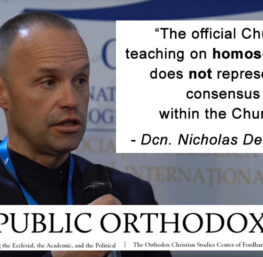Referencing: Not a Chance by Dean Overman
I’ve thought a lot about this compelling article today and came up with an idea I will attempt to explain. I never write about science so I havn’t developed the vocabularly to explain myself as well as I should, so have patience.
Overman talked about the mathematical improbabilities of the DNA molecue developing by chance (contra Darwin). As I reflected on this I took it a bit in a different direction based on my experience designing and maintaining this website, particularly learning and using the design coding.
The DNA molecule is essentially an information grid. The bits of proteins that assemble to determine how a human body develops are really biochemical bits of information.
Computer code works the same way, except of course the code is an electronic bit of information. The coder assembles a series of letters and numbers in a particular order and the result is, say, a web page. Change the ordering of the letters and numbers and the design and content of the web page changes.
Looking at both information systems we recognize that all information, if it is to be meaningful — in the case of the DNA a functional human body, in the case of the computer code a coherent web page — must be hierarchical. Information requires an ordered and sequential structuring. Left unstructured, the bits mean nothing.
Darwin was a materialist, which means that the hierarchy — the ordered and sequential structuring of the bits of information — must exist within the matter of the organism itself. In a way this is true. When egg and sperm meet for example and the genetic code is exchanged, the zygote starts the process of becoming a fully formed adult that is already encoded in the genes. The hierarchy is contained within the DNA.
Web pages work the same way. Link to this site, and a stream of data is down loaded into your browser that looks the same to everyone visiting the site. (We will overlook the differences in browsers for the moment.) The hierarchy of the information displayed is encoded in the downloaded bits.
But if we take both DNA and the web page back to its origins, a problem arises. How do the chemical bits that form a person, or the electronic bits that form a web page, take their shape apart from a preexisting informational hierarchy?
Let me try to clarify this. If Darwin is correct and matter is the ground of all being, that is, if only matter and chance existed in the beginning, then the informational hiearchy that guides the ordered and sequential structuring of matter into organisms and systems must have arisen from that same matter.
But the “arising”, the development of any system (or organism) presupposses an informational hierarchy that is already in place. IOW, if the system depends on an informational hierarchy — an ordered and structure sequencing — in order to be meaningful, then the hierarchy must necessarily preexist the development of a system (and perhaps matter itself).
Let me give you an example. If I randomly pounded on my keyboard twenty-four hours a day for a million years I would never create a functioning webpage. It simply is too complex a process. Only when I insert the proper tags, call the relevant files etc. (like the header, copyright notice, etc. things you never see unless you click “view” and “source”), will a webpage be created. I impose the hiearchy by how I assemble the data.
Darwinism argues that the system can assemble itself, randomly and by chance. But it can’t. No system can assemble itself apart from a pre-existing informational hierarchy. It’s a functional impossibility.
How do we know this? Because all information is hierarchical. It’s structured data. Remove the structure and the data becomes meaningless. It is no longer information. This is an indisputable brute fact.
Now of course a web page is at least – and since I’m not a mathematician I’ll use a number we can all understand – a zillion times less complex than the DNA molecule. But the complexity makes my thesis all the more apparent I think.
Comments and critiques welcome.




Albert Einstein is of course recognized as having been one of the most brilliant minds of our age. While he did not have a faith in a “personal God” who pulled people’s strings as such, he did say this which I found intriguing:
It must be admitted that our actual knowledge of these laws is only imperfect and fragmentary, so that, actually, the belief in the existence of basic all-embracing laws in Nature also rests on a sort of faith. All the same this faith has been largely justified so far by the success of scientific research. But, on the other hand, every one who is seriously involved in the pursuit of science becomes convinced that a spirit is manifest in the laws of the Universe-a spirit vastly superior to that of man, and one in the face of which we with our modest powers must feel humble. In this way the pursuit of science leads to a religious feeling of a special sort, which is indeed quite different from the religiosity of someone more naive.
Re: “Let me give you an example. If I randomly pounded on my keyboard twenty-four hours a day for a million years I would never create a functioning webpage.”
Not true at all. Genetic programming does this in variations all the time and is used to solve real problems often more efficiently than any hand design. There are all kinds of variations too from taking a pre-existing structure and filling in values to just filling in bits that are then read as a program.
But doesn’t your example assume the logic is already encoded? My point is that the informational structure cannot evolve into existence concurrent with the developing system. It must necessarily precede it. This would be different than saying that th a system cannot affect a reordering of its constituent parts (such as genes on the DNA molecule, or a dynamically driven web page, for example).
Am I understanding your point corrrectly?
Fr, I don’t know what you mean by “logic already encoded,” but an environement already exists and this includes a fitness test to chose what programs (and possibly their offspring depending on how you are running the GP system). The logic that drive the generations is essentially “what does best” (the fitness test). It’s no much different than things form basic self-reproducing molecules to more complex mammals. They all just exists to propogate.
For instance, take a GP program that is represented as a tree of commands (it could be represented by a sequence of bits it doesn’t matter). The tree has two things that hang from it: if the left child executes true, then the right child is executed (and if not then nothing). This is no more than the basic logic that is encoded in the chemical properties of matter: if a certain functional groun gets stuck on this molecure, then it can attach to this other molecule. That binding could potentially lead to a another reaction, just as with the tree of commands, that right child can be a more complex expression too.
Genetics aren’t the lowest on the ladder. The properties of genes are driven by the chemisty underneath them, but it makes conceptual sense to think as if they are to make the analysis simplier. There is even the same thing in genetic programming. There are groups of “discovered” code segments that are treated as a single function by the program being developed itself. It builds its own logical foundation essentially.
They’ve used GP to developed things like noise filters in audio equiptment and do it better than a person can. They use a form of it to do chip layout. These programs sometimes take a different approach than a human would or find a more efficient way to sort of factor out unnecessary excess. These programs are then tweaked by humans to get rid of dead segments that didn’t get removed or make other obvious simplifications and changes.
In his Pulitzer prize winning book “The Diversity of Life”, Edward O. Wilson writes:
“The final creative feature of natural selection is the ability to assemble complicated new structures and physiological processes, including new patterns of behavior, with no blueprint and no force behind them other than natural selection itself acting upon chance mutations. This is a key point mised by creationists and other critics of evolutionary theory, who like to argue that the probability of assembling an eye, a hand, a life itself by genetic mutation is infinitesimally small – in effect impossible.
But the following thought experiment shows that the opposite is true. Suppose that a new trait emerges if two new mutations, call them C and D, emerge simultaneously on different chromosome sites. The chance of C occurring is one in a million per individual organism, a typical mutation rate in the real world, and the chance of D occurring is also one in a million. Then the chance of C and D occuring in the same individual is a million times a million, or a trillion – a near impossibility – as the critics have insisted.
But natural selection subverts this process. If C confers even the slightest advantage all by itself it will become the prevailing gene through the population at its chromosome position. Now the chance of CD appearing is one in a million. In moderate to large populations of plants and animals, which often contain more than a million individuals, the changeover to CD is a virtual certainty.”
jjayso, yes. My question is more philosophical I think. If randomness were the order of the universe, and by randomness I assume we mean the absence of any order, where did the capacity toward ordering, reproduction, coherence, that systems possess come from?
More and more I see Darwinism as a rewrite of Genesis with impersonal force substituted for the Divine Voice. That impersonal force (random energy?) predates the actual “Big Bang” just as God existed outside of time and space.
Take Darwinian teleology for example. The notion that randomness can develop into order (and even encode this order into matter over time), is an assumption that I think can only come from Genesis, given that ancient religions saw time as circular, not linear. Pagan religions (non-monotheistic religions), don’t perceive time as linear, making the notion of progress and all that informs it (coherence, unity, development) difficult to conceive as well.
Dean, this seems to be the assumption underlying Edward O. Wilson’s argument. If randomness was the universal order, more specifically, if there was no order at the origin of the universe, then where does the assumption that randomness can develop into order, ie: the notion of linear time that makes progress possible, come from? Wilson takes no notice that his assumptions about progress cannot be grounded in the randomness (the absence of order) he defends.
Rather, it seems to me, that if we take the Darwinian assertion that no order existed, we also have to throw out the notion of linear time, if we want to remain philosophically consistent. But then, consistency implies order, order is necessary for progress, and we are back where we started.
Darwin’s argument is that the potential for the development from randomness (non-order) into order lies in the matter itself. This is what makes him a philosophical materialist. But it also begs the question of where that potential for ordering has its source.
Darwinism, I think, is a lot like atheism: it could only have risen in a Christian milieu. Darwin (and many of his defenders) may not have realized how thoroughly Christianized the deep structure of his thinking really was.
Addendum:
Some questions.
Is the concept of randomness (non-order) drawn from the “chaos” of the waters in Genesis?
When speaking of randomness, why do Darwinists contextualize it as mathematical uncertainty or improbability, that is, as structured disorder rather than chaos (like Wilson does above)?
From a different angle, does the Darwinist employ the term “randomness” as a literary, rather than scientific, construct? (If so, then science itself will be Darwin’s undoing.)
Father J: Certainly on a spiritual-level, a universe governed by pure randomness, or entropy, is deeply antithetical to Christian beliefs. At the heart of the Christian universe, is a God who is the radiant core of all goodness and love. God’s influence is transformational, changing us from biological entities ruled by a desire for physical gratification, into conduits and agents of divine love tranforming evil and chaos into order and goodness.
The question is to what degree is God involved in the details of human existence. Is He the “Great Clockmaker” who created the world but then distanced Himself from it? Or is God determining every event that transpires every day, from the list of people who will die in car accidents to the cards I am dealt in a hand of Poker. The intervention of God in the history of the people of Israel and the life of Jesus Christ suggests a level of involvement at least somewhere in between. God cared enough to send the prophets and Jesus Christ to guide us, but also gave us free will to make our own decisions.
Wilson’s argument suggests that natural selection is not completely random, but “structured disorder”, as you say. Genetic mutation is random, but the dice are loaded and the game rigged. Those traits that improve survivability are passed on to future generations and become predominant, while those that increase vulnerability eventually disappear.
It’s intriguing to think that perhaps human beings have evolved to the stage where survivability of the human species depends on our development as spiritual, not physical entitities. We’ve mastered our environment – no other creatures can harm us, we can only harm ourselves.